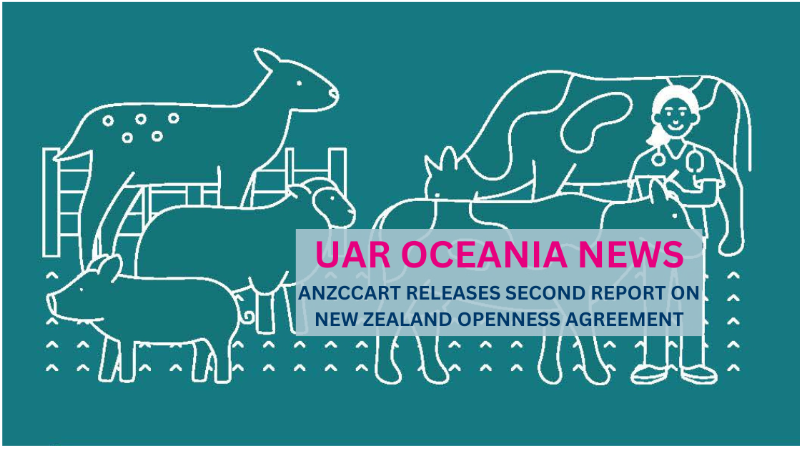What is the scope of Understanding Animal Research?
Understanding Animal Research engages in the UK public debate about the use of animals in medical research. We do not get involved in related issues such as cosmetics testing (which is no longer carried out in the UK), GM foods, human cloning, use of animals for dissection in schools etc.
Where does Understanding Animal Research get its information from?
We try to make sure that all our information comes from reliable sources. We believe it is very important to get the facts right, because the facts should form the basis for debate. For information on advances in science and medicine, we usually refer to peer-reviewed original research papers in the scientific and medical journals, rather than secondary sources such as review articles or books, which can be misleading. We also refer to the very detailed figures on the use of animals in research that are published every year by the UK government.
Why are animals used in research?
There are three main reasons:
- To advance scientific understanding,
- to develop solutions to medical problems,
- to protect the safety of people, animals and the environment.
Animals are used when there is a need to find out what happens in the whole living body, which is far more complex than the sum of its parts. It is very difficult, and in most cases simply not yet possible, to develop non-animal methods to replace the use of living animals.
Who uses animals in research?
Most people carrying out the research are doctors, scientists, vets or trained animal carers, working in universities, hospitals, research institutes and pharmaceutical companies. Everyone who uses animals in research must have the necessary skills and training, and the research must be carried out in licensed premises.
Is animal research necessary?
We would be very unlikely to achieve many significant advances in scientific understanding or the prevention and treatment of diseases without animal research. We also need to use animals in safety testing to protect people, animals and the environment.
Are animals too different from people for animal research to be valid?
Obviously there are differences between animals and people. But under the skin, the biology of humans and other animals, particularly mammals, is remarkably similar. We have the same organs, controlled by the same nerves and hormones, as many other species. Where there are differences, researchers know about them, and such differences can actually help scientific understanding of a particular problem. Many animals suffer quite naturally from the same diseases as humans, and can be used to study those diseases. In other cases, researchers can use an 'animal model' of a disease which is close to the human condition.
Has animal research contributed to medicine?
Almost every major medical advance has depended on the use of animals at some stage in its research, development or testing. Examples include antibiotics, anesthetics, insulin for diabetes, organ transplants, and hip replacements.
Are there alternatives to using animals in research and testing?
It has proved very difficult to develop non-animal methods to replace the use of animals in research and testing. Most progress has been made in the replacement of animals in safety testing. Once non-animal methods have been developed and validated, and are accepted by the regulatory authorities world wide, then they must be used in preference to the animal tests. Animal experiments are just one method in biological and medical research - research can also be done using cells, tissues, people, and high tech equipment. Some people regard these methods as alternatives, but they are really complementary methods that are used alongside animal research to answer different sorts of questions. Animal research and testing accounts for a small proportion of all biomedical research and testing.
How is animal research regulated?
Laws around the world vary. Usually they depend on either a local system (which may be voluntary) or on national controls administered by the government. The UK is the only country in the world to have both systems running at the same time. The strict controls under the Animals (Scientific Procedures) Act 1986 were added to in April 1999 with the introduction of the Local Ethical Review Process for animal research. There are also international regulations such as the European Directive 86/609.
How is animal welfare protected in the laboratory?
Researchers have good ethical, scientific and legal reasons to treat laboratory animals well and use them in minimum numbers. All animals must be properly housed, fed and cared for. Pain and distress must be minimised and the UK controls state that there must be a vet on call at all times. These controls also make sure that any animal suffering severe pain which cannot be alleviated is put down immediately.
What are the three Rs in animal research?
The three Rs are the guiding principles in animal research.
- Reduction means that numbers of animals are minimised.
- Replacement means that non-animal alternatives are used whenever possible.
- Refinement means that animals are looked after properly and any pain or distress minimised.
What animals are used in research?
Over three quarters of animals used in research are rodents - mice and rats. Fish, amphibians, birds, rabbits and larger mammals such as pigs and sheep are also used. Cats, dogs and monkeys together make up only about 2 in every 1000 research animals.
How many animals are used in research?
In 2019 (the latest year for which figures are available) a total of 3.4 million procedures were carried out on animals in Great Britain. This is slightly more than the number of animals used as more than one procedure can be carried out on an animal. It is estimated that worldwide around 60 million animals are used in research every year.
Do animals suffer in research?
Most animal research involves little more than injections, taking small blood samples, feeding or breeding studies. If animals undergo surgery, they get anaesthetics just like human patients. Pain killers are given where appropriate and pain must always be minimised. But, if you are studying diseases such as cancer or arthritis which cause pain and suffering for patients, sometimes the research will cause animals to suffer.
Is it ethical for humans to experiment on animals?
Most people accept that, if animals are looked after properly in laboratories, and used in minimum numbers only when necessary, then it is ethically acceptable to use animals in medical research. If we stopped using animals, then it is difficult to see where the solutions to today's medical problems are going to come from. Is it right to deny these treatments to the patients who are suffering now and in the future? That would be the result if animal research were to be abolished immediately as called for by the animal rights groups.
Do animals have rights?
There are some people who believe that animals have equivalent rights to human beings. This would rule out their use as food, for clothing, in circuses etc. Some animal rights activists even believe that keeping animals as pets is like slavery. Clearly, as about 90% of people in most cultures eat meat, most do not believe that animals have such rights. Most people accept that animals have a right to be treated humanely, and that people have responsibilities towards animals to make sure they are properly cared for. This acceptance of the animal welfare ethic is quite different from giving animals equivalent rights to humans.
Was thalidomide tested on animals?
Animal rights groups often blame the thalidomide tragedy on animal testing. At that time (in the 1950s) it was not known for a drug to affect the fetus without affecting the mother. So thalidomide was never tested on pregnant animals before being prescribed to pregnant women. If it had been, the same birth defects would have shown up in the animals - as they did subsequently - and thalidomide would never have been used by pregnant women.
Is penicillin toxic to guinea pigs?
No, not at doses equivalent to those taken by people. Early studies showed that very large doses of impure penicillin caused toxic effects in guinea pigs, hence the animal rights claim that penicillin is toxic to guinea pigs. In fact, the toxic effects seen in guinea pigs after very large doses are very similar to an effect sometimes seen in patients on long-term penicillin, so guinea pigs and humans react in very similar ways.
Why can't animal testing eliminate drug side effects?
Safety testing of new drugs involves non-animal tests, animal tests and human trials. The animal tests provide vital information which prevents the poisoning of human volunteers who take part in trials. Drugs are usually tested on many more people than animals. If side effects show up only after the drug has been marketed and prescribed to hundreds of thousands of people, it is because they are very rare. So rare that the human trials on several thousand people would not discover them.
What do most doctors and scientists think about animal research?
All properly-conducted surveys of doctors and scientists show that the vast majority agree that animal research is vital to advance medicine and protect our safety.
Where can I find different views about animal research?
We recognise there are different views in the public debate about animal research. We believe it is right that people should hear all sides before making up their minds, so we have provided a page of links including the web sites of animal rights groups, animal welfare groups, groups developing replacement methods, regulatory authorities etc.
When did animal experimentation start?
The famous Greek doctor Galen (AD129-200) studied animals. William Harvey used animals 400 years ago to discover how blood circulated in the body. The 'modern' era of animal research started about 150 years ago with the rise of physiology as a science. But it was very different then - there were no anaesthetics or effective pain killers, so the animals suffered a great deal, as did patients. Imagine having your leg amputated (which was not uncommon - infections could be very serious before antibiotics) without anaesthetic.
What does vivisection mean?
The literal meaning of the word vivisection is cutting living flesh. It is not a very accurate description of animal research, as most animal research does not involve surgery. The literal definition could even apply to human surgery. However, many abolitionist groups use the word vivisection to mean all research involving living animals.
Are pets stolen for research?
There is absolutely no evidence that stolen pets are used in research in the UK. All cats and dogs used in research must be specially bred by licensed breeders. In fact nearly all animals used in research must be obtained from licensed breeders and suppliers.



